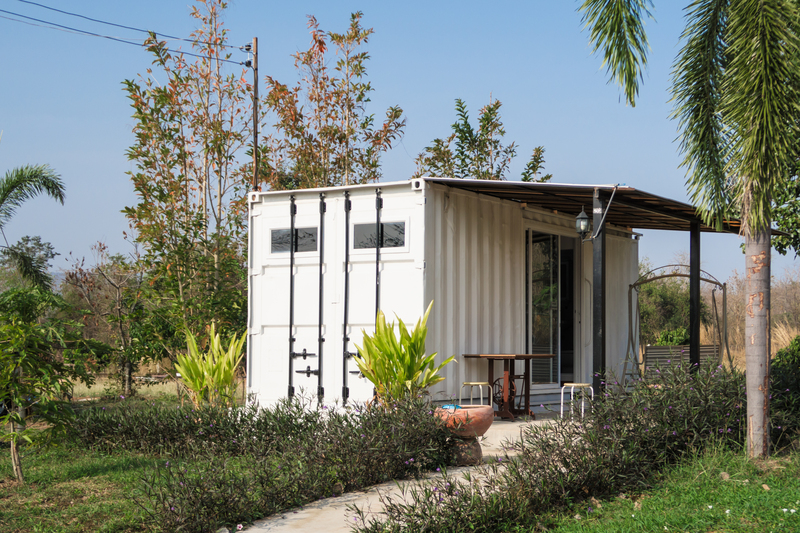
Why Metal Recycling Matters for the Environment
In an era where environmental sustainability is more crucial than ever, metal recycling emerges as a vital component in conserving natural resources and reducing environmental impact. The benefits of metal recycling are far-reaching, impacting everything from energy consumption to economic growth. This article will delve into why metal recycling is significant for our planet and how it contributes to a sustainable future.
The Basics of Metal Recycling
Metal recycling involves collecting and processing scrap metal so it can be transformed into new products. This process not only conserves metal resources but also reduces the energy required to manufacture new metal products, which further reduces pollution and greenhouse gas emissions.
Key Steps in the Metal Recycling Process:- Collection: Gathering used or waste metals from households, industries, and businesses.
- Sorting: Segregating metals based on type and quality.
- Processing: Shredding and breaking down metals into smaller, manageable pieces.
- Melting: Metals are melted in large furnaces to form new metal blocks.
- Purification: Ensuring the metal's purity, often by using electrolysis.
- Molding: Melting metals molded into specific designs or left as ingots.
- Transportation: Shipped to manufacturers for creation of new products.
The Environmental Impact of Traditional Metal Production
Traditional mining and metal production are resource-intensive and harmful to the environment. They involve processes that release toxins into the air and water, destroy ecosystems, and consume vast amounts of energy. For instance, the extraction and processing of virgin metal ores lead to significant carbon emissions and land degradation.
Environmental Consequences Include:- Deforestation: Clearing forests for mining sites contributes to loss of biodiversity.
- Pollution: Release of harmful chemicals like mercury and cyanide into water bodies.
- Energy Consumption: Mining and processing virgin metal are energy-intensive, leading to increased carbon footprint.

The Advantages of Metal Recycling
Recycling metals offers numerous environmental benefits that can drastically alter our modern ecological landscape. Let's explore the reasons why metal recycling matters so much to the environment.
1. Conservation of Natural ResourcesMetals such as aluminum, copper, and steel are limited resources. Recycling allows us to conserve these materials, thereby reducing the need for mining. This conservation is especially critical as the global demand for metals continues to rise due to technological and infrastructural advancements.
2. Energy EfficiencyRecycling metals is significantly more energy-efficient than producing metals from virgin ores. For example, recycling aluminum saves up to 95% of the energy needed to create the same amount from raw materials. Energy savings translate into better utility of fossil fuels and reduced emissions.
3. Reduction in PollutionWhen metals are recycled, the pollution caused by mining and processing is significantly lessened. The recycling process emits far fewer greenhouse gases like carbon dioxide, which contributes to global warming. Additionally, less toxic waste is released into our air and water systems.
4. Reduction in Landfill UseMetals take hundreds of years to decompose in landfills, where they occupy valuable space and can leach toxic elements into the ground. By recycling metals, we reduce the volume of waste sent to landfills, making space for other non-recyclable waste and minimizing potential environmental hazards.
The Economic and Social Benefits of Metal Recycling
Aside from the environmental perks, metal recycling also brings about significant economic and social benefits:
Economic Growth:- Job Creation: The metal recycling industry creates more jobs than landfill waste management or incineration processes.
- Cost Efficiency: Recycling usually costs less than mining and processing new materials.
- Market Stability: Using recycled metals helps stabilize market prices, maintaining a balance between supply and demand.
- Community Participation: Local recycling programs increase community involvement and environmental responsibility.
- Education: Awareness boosts education about the importance of sustainable practices and preservation of resources.
Challenges and Future Prospects in Metal Recycling
While metal recycling has numerous benefits, certain challenges must be addressed to optimize its effectiveness. These include the need for improved technology, better regulatory policies, and more awareness campaigns to encourage widespread public participation in recycling initiatives.
The future of metal recycling looks promising, with advancements in recycling technologies and increased global emphasis on sustainability. By harnessing innovative processes such as automated sorting and better recycling facilities, the efficiency and scope of metal recycling can be vastly expanded.
ConclusionAs we look toward a sustainable future, metal recycling offers a viable solution to preserve the environment while delivering economic and social advantages. It is a crucial step in fostering a circular economy, where resources are continually reused and remanufactured, reducing reliance on natural resource extraction and minimizing waste. With the concerted efforts of individuals, industries, and governments, metal recycling can make a substantial positive impact on our planet.
Let us commit to recycling today for a greener tomorrow.